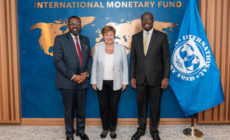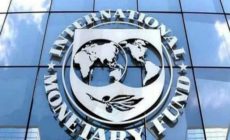BoG under IMF pressure to tackle weaknesses in Ghana’s banking
- Posted on
- Comment
THE Bank of Ghana (BoG) has three months to come out with its recapitalization plan for banks in Ghana to avert a deepening of the current instability in the country’s financial sector, Business Finder can reveal.
The International Monetary Fund (IMF) says it expects the regulator to address identified weaknesses in Ghana’s banking system and guarantee its resilience through the design of a formal, time bound roadmap, agreed with IMF staff.
“By end-February 2017, upon review of these plans by the Board, the BoG shall communicate its decision to banks. Banks that fail to regularize their capital situation or repay their emergency liquidity support shall face supervisory action in accordance with the Banking Act,” the IMF stated in its last report after the third review of its programme with Ghana.
The BoG’s own Financial Stability Report published in September 2016 acknowledged a huge decline in profitability of banks when compared with last year and rising non performing loans on books of banks.
“The sector’s income before tax registered a negative year-on-year growth of 0.5 percent in July 2016 compared with a growth of 18.2 percent in July 2015. Similarly, the industry’s net profit after tax contracted by 1.0 per cent in July 2016 compared with a 15.1 per cent growth in the same period last year. The industry’s net interest income recorded slower growth of 19.4 percent in July 2016 compared with a 34.5 per cent growth in July 2015,” the report stated.
According to the report, “the quality of loans on the banks’ books generally worsened in 2016. Non–performing loans (NPLs) increased by 69.4 per cent from GH¢ 3.6 billion in July 2015 to GH¢ 6.1 billion in July 2016, translating into an NPL ratio of 19.1 per cent, up from 13.1 percent in July 2015.”
To deal with some of the challenges, a committee set up by the BoG to come up with the modalities and the new capital requirement has already presented its work to the Governor.
The new capital requirement, analysts believe could be in the neighbourhood of GH¢200 million from the current GH¢120million.
Market watchers fear some banks will be forced to merge or acquired, leading to some job losses.
They maintain that it is characteristic for an acquiring company to restructure its new business, leading to cost reduction and job cuts, taking a cue from the Fidelity Bank, a Procredit acquisition.
The IMF in its last review was equally concerned about the banking industry’s non-performing loan ratio which it said had increased sharply to 18.8 per cent in June 2016 from 11.2 per cent a year earlier.
“Full and timely implementation of the BoG’s roadmap for the banking system is essential to address financial sector risks,” the Fund stated in its latest report.
The Breton Woods institution thus tasked the BoG to conduct a stress test on banks operating in the country.
A stress test was thus carried out by accounting professionals, KPMG revealed high impairment charges as well as capital adequacy ratios that were below acceptable levels.
Already, media reports indicate that the regulator will implement an economic capital requirement after which the regulatory capital will follow.
The economic capital, according to a banking consultant, Nana Otuo Acheampong, will assess the economic activities of banks in the country to determine the economic capital structures under which they will operate while regulatory capital is where the regulator sets a one side stator capital.
Some local banks could also be swallowed by the bigger players in the industry.
Just last week, third quarter unaudited financial reports by banks indicated that the NPL ratio of banks was very alarming While Standard Chartered Bank reported an NPL of 48.86 percent for the third quarter of 2016, HFC recorded an NPL of 30.50 percent for the first nine months of 2016.
As reported earlier on, as many as about eight banks will resort to the capital market or at worst undertake private placement to raise capital to meet the expected new capital requirement for all banks in Ghana.
By Augustine Amoah











 (Selorm) |
(Selorm) |  (Nana Kwesi)
(Nana Kwesi)